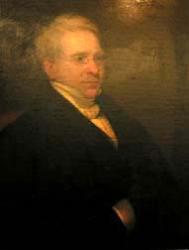b. 1720 Person Name: J. Humphreys Hymnal Number: 390 Author of "Blessed [Blest] are the sons of God" in Social Psalmist Humphreys, Joseph, son of Asher Humphreys, minister at Burford, Oxfordshire, was born at Burford, Oct. 28, 1720, and educated at a grammar school at Fairford, and at an academy for the training of young men for the ministry in London. From the latter he was expelled, Dec. 25, 1739, because of his attachment to Whitefield. For a short time he associated with the Wesleys, but eventually joined G. Whitefield, and subsequently preached at Bristol, London, and Deptford. He died in London (date unknown), and was buried in the Moravian Cemetery at Chelsea.
He was a contributor to Whitefield's Christian History (1741-1748), 1742, &c, and published, 1742, An Account of Joseph Humphreys's Experiences, &c. As a hymnwriter he is not widely known. His hymns were contributed to J. Cennick'e Sacred Hymns for the Use of Religious Societies (Bristol), 1743, pt. ii., and are thus introduced: "These were done by Mr. Joseph Humphreys." Of these hymns, two only are in common use:—
1. Blessed are the sons of God. Adoption.
2. Come, guilty souls, and flee away. Invitation. These are given in Spurgeon's Our Own Hymn Book, 1866,
and other collections. No. 1 is the more popular of the two. It is sometimes abbreviated, and has the concluding lines of st. viii. added as a refrain to each stanza.
--John Julian, Dictionary of Hymnology (1907)
=================
Born: October 28, 1720, Burford, Oxfordshire, England.
Died: London, England.
Buried: Moravian Cemetery, Chelsea, England.
Joseph was the son of Asher Humphreys, Rector of Barton, Hertfordshire, and subsequently Burford, Oxfordshire. At age 10, Joseph was sent to a grammar school at Fairfield, Gloucestershire. His father died in 1732, and Joseph was sent, at age 12, to a theological school in London. In 1738, having been converted to the doctrines of the Wesleys, he began to preach at the Foundry, London, in Bristol, and elsewhere. He attached himself particularly to John Cennick, and accompanied him frequently on his evangelistic tours. Hatfield reports, "For his irregularities in these respects, he was expelled, December 25, 1739, from the school."
Following Cennick’s example, Humphreys separated from the Wesleys in April 1741 and became associated with Whitefield. The same year, he preached for the Moravians at Deptford, West Greenwich. He was also one of the four principal contributors to The Weekly History, just then established, in the interest of the new religious movement. Several of his "Letters to John Wesley," opposing his views, appeared in this journal.
Humphreys frequently preached at the Bowling Green, Bristol, and the Tabernacle, London. In January 1743, he united with several clergymen and lay preachers in organizing, near Cardiff, Wales, the first Calvinistic Methodist Society. In 1790, according to John Wesley’s journal, Humphreys left Whitefield and was ordained a Presbyterian minister. He later received an Episcopal ordination.
Humphreys’ works include:
A Letter to the Religious Societies, in Testimony Against the Errors of Universal Redemption and Sinless Perfection (Bristol, England: 1741)
An Account of Joseph Humphreys’ Experience at the Work of Grace upon His Heart (Bristol, England: 1742)
--www.hymntime.com/tch
Joseph Humphreys


 My Starred Hymns
My Starred Hymns




